Jackson, MS Pollen and Allergy Report for Summer 2023
Pollen Allergy Trends in Jackson, MS
When is pollen lowest in Jackson, MS?

February
Lowest month total PPM
Avg. PPM
When is pollen highest in Jackson, MS?

May
Highest month total PPM
Avg. PPM
How does pollen in Jackson, MS compare to Mississippi?
Jackson has a equal average PPM than the state of Mississippi.
Jackson yearly avg PPM:
Mississippi yearly avg PPM:
How does pollen in Jackson, MS compare to the USA?
Jackson has a lower average PPM than the USA.
Jackson yearly avg PPM:
USA yearly avg PPM:
Is pollen worse this year in Jackson, MS?
Spring 2023 was worse than spring 2022.
Spring 2023 PPM:
Spring 2022 PPM:
Average PPM in Jackson, MS
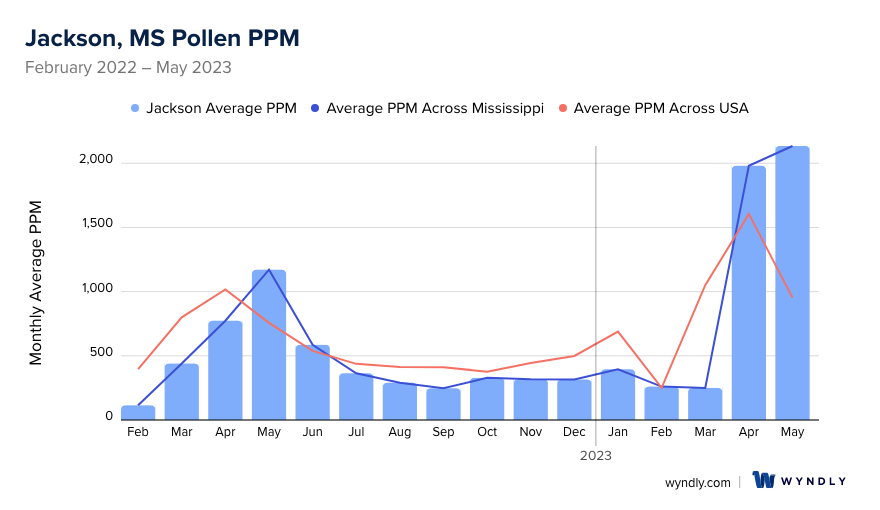

Jackson, MS Pollen and Allergy Breakdown by Month
Grass
When is grass pollen highest in Jackson, MS?
May has the highest grass pollen in Jackson, MS with an average PPM of
When is grass pollen lowest in Jackson, MS?
October has the lowest grass pollen in Jackson, MS with an average PPM of
Tree
When is tree pollen highest in Jackson, MS?
May has the highest tree pollen in Jackson, MS with an average PPM of
When is tree pollen lowest in Jackson, MS?
September has the lowest tree pollen in Jackson, MS with an average PPM of
Weed
When is weed pollen highest in Jackson, MS?
April has the highest weed pollen in Jackson, MS with an average PPM of
When is weed pollen lowest in Jackson, MS?
February has the lowest weed pollen in Jackson, MS with an average PPM of
Jackson, MS Pollen Monthly Breakdown by Pollen Type
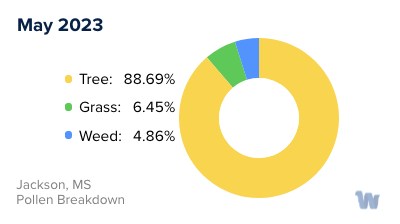

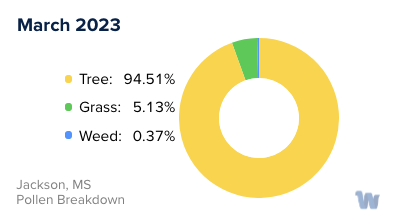
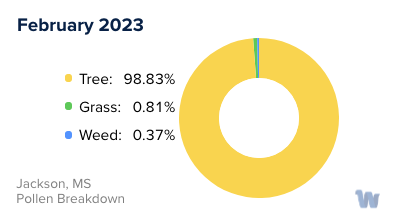
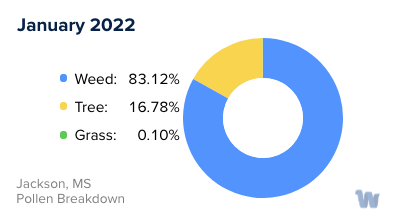
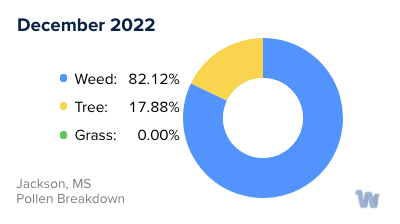
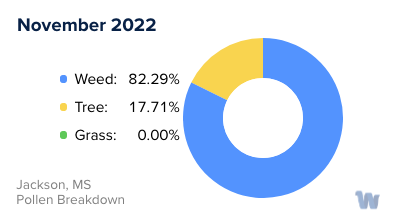
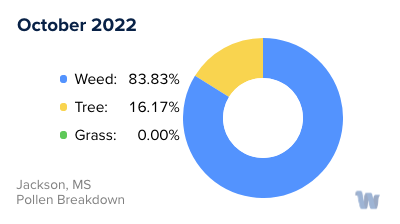
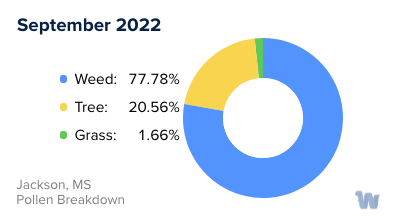
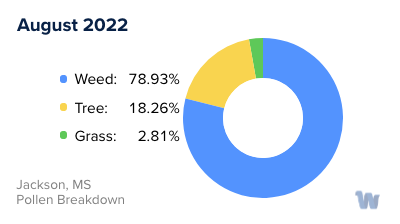
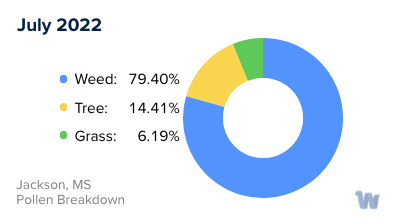
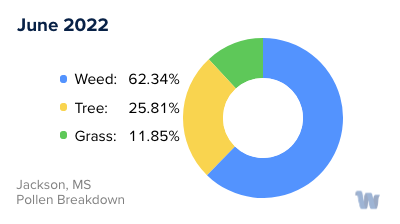
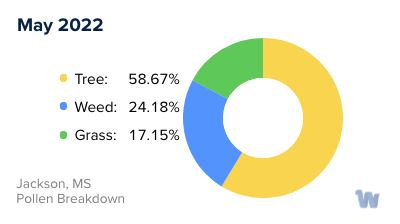
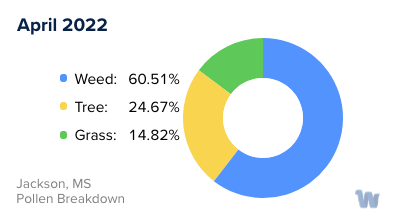
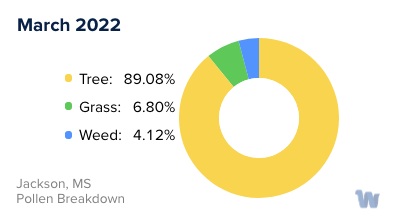
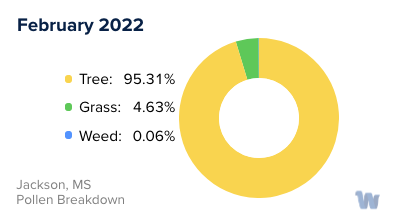
Pollen and Hay Fever in Jackson, MS
In the vibrant city of Jackson, Mississippi, the changing seasons bring with them an array of colors and experiences. However, they also usher in the less welcomed specter of pollen allergies and hay fever for many residents.
Pollen, an airborne allergen, comes from a variety of sources including trees, grasses, and weeds. In Jackson, the types of pollen vary depending on the season, with each having its unique culprits.
Spring is the time when tree pollen is most prevalent. Oak, pine, and hickory are the main contributors, their microscopic grains wafting through the air, leading to sneezing, itchy eyes, and stuffy noses for those sensitive to them. These trees begin to release their pollen as the winter cold recedes, marking the beginning of the allergy season for many.
As we move into the warm embrace of summer, grass pollen takes center stage. Bermuda grass, Timothy grass, and Kentucky bluegrass are common in Jackson and their pollen grains can trigger hay fever symptoms. While many might associate lush, green lawns with summer relaxation, for those with grass pollen allergies, this can be a challenging time.
Fall, often seen as a reprieve for allergy sufferers, still has its allergenic contenders. Weeds, particularly ragweed, produce pollen that can travel hundreds of miles, potentially affecting individuals even if these plants are not found locally. Ragweed pollen is extremely fine and can be easily inhaled, causing allergic reactions.
Understanding the types of pollen and their seasons is a crucial first step in managing pollen allergies and hay fever. Awareness allows those affected to anticipate and prepare for the pollen seasons, ensuring they can still enjoy the beauty and activities Jackson offers throughout the year.

